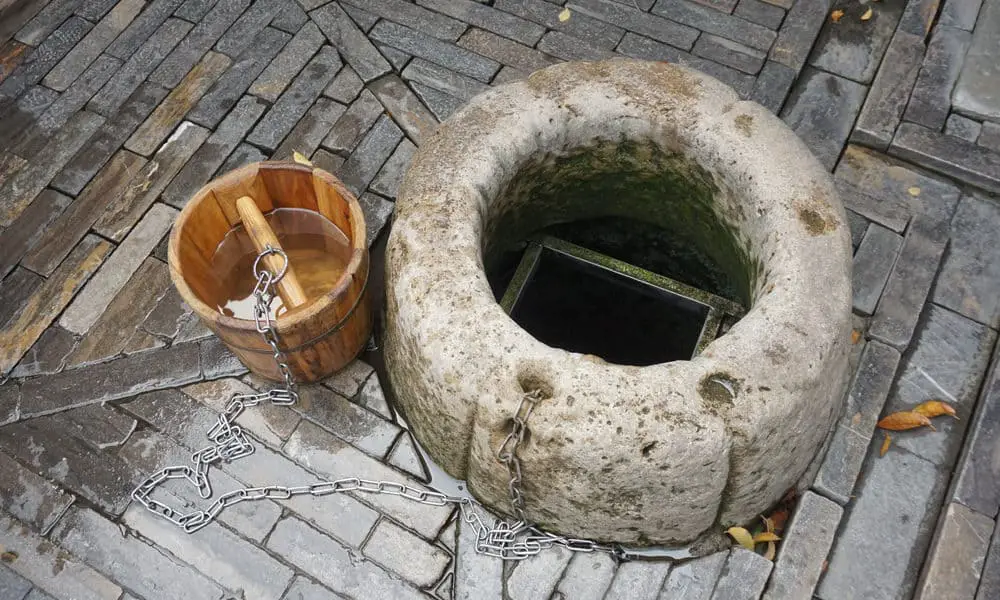When you are considering purchasing a home, one factor you may not have considered is where it gets its water from. There are two main options – either well water or city water.
Those who have grown up drinking well water tend to disregard the benefits of city water and vice versa. There are positives and negatives to both kinds.
Everyone needs water – whether it is for hygiene, drinking, laundry, or cooking. You cannot rely on bottled water alone. Well, you can but the cost would be exorbitant if you used it for everything.
Read on to find out more about the pros and cons of getting your water from well water vs city water.
Well Water
Homes that come complete with a well tend to be found in rural areas. With at least 15 million homes with wells in America, they are not uncommon.
Houses that use well water have a well on the property. They use the water from this source for drinking, cooking, and bathing.
Wells are created by drilling down into the ground until you access water underground. This water is then pumped into the house using something called a submersible pump.
Well Water Pros
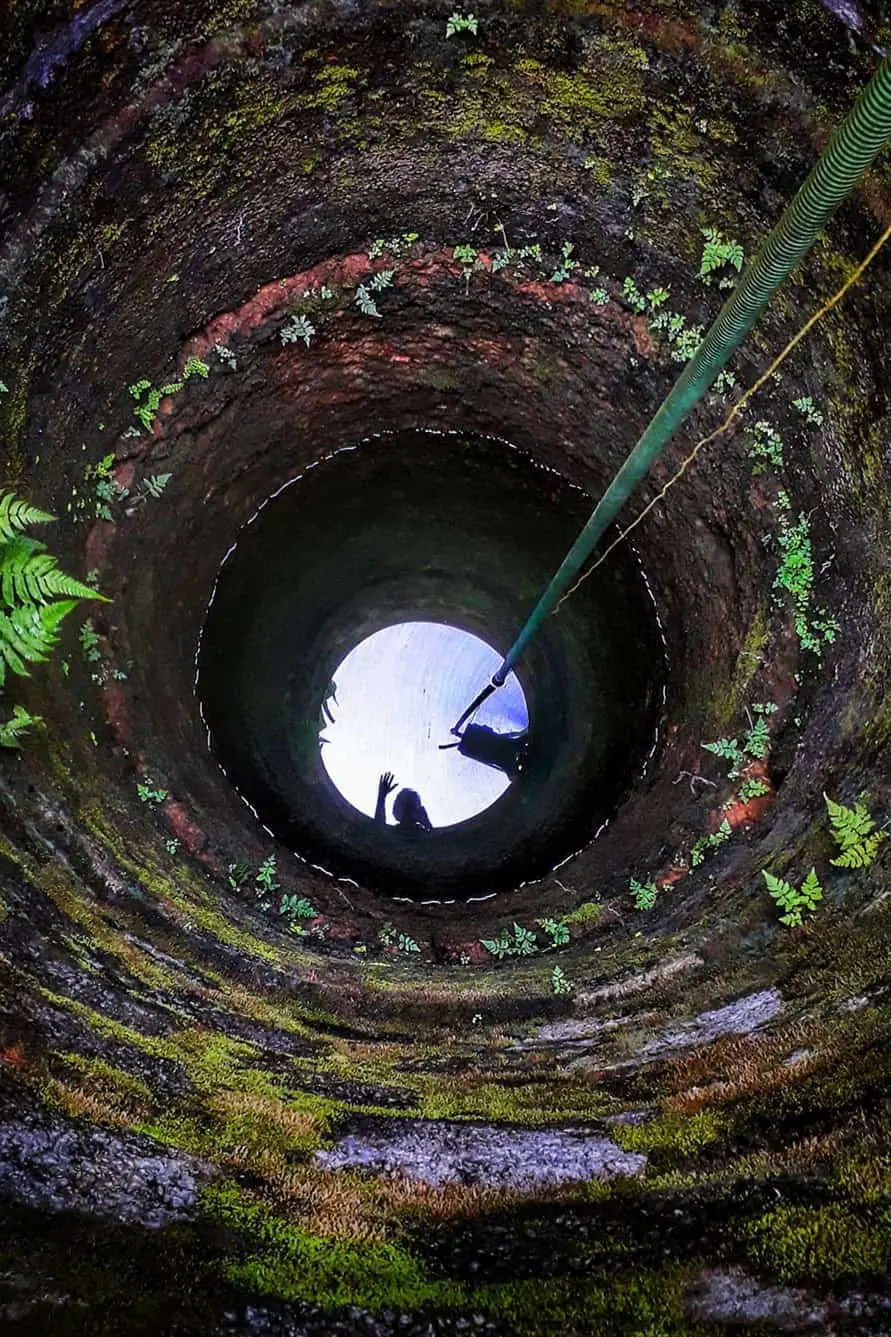
It is Rich in Minerals
Groundwater is rich in minerals such as calcium and magnesium. This is both a pro and a con because this means it is hard water that should be filtered. One of the things that must be considered if you are using well water is that it is literally groundwater.
That is water which is taken straight from the ground and sent into your taps. When water is in the ground, it will absorb a lot of the compounds surrounding it.
This can include healthy minerals but also any pollution down there. That is why it is vital that you treat your water to ensure it is drinkable.
It is Free
You can say goodbye to your monthly water bill for using public water. You do not need to pay for the right to use well water as it is sourced straight from the earth. Additionally, if you have a septic system then you do not need to pay sewer use bills either.
Less Likely to Be Affected by Natural Disasters
Well water is less likely to be contaminated like public water is when natural disasters occur. Flooding, for example, can have a huge effect on public water contamination.
Well water, on the other hand, will only be affected if the problem is particularly bad as it is taken from much deeper in the earth.
Well Water Cons
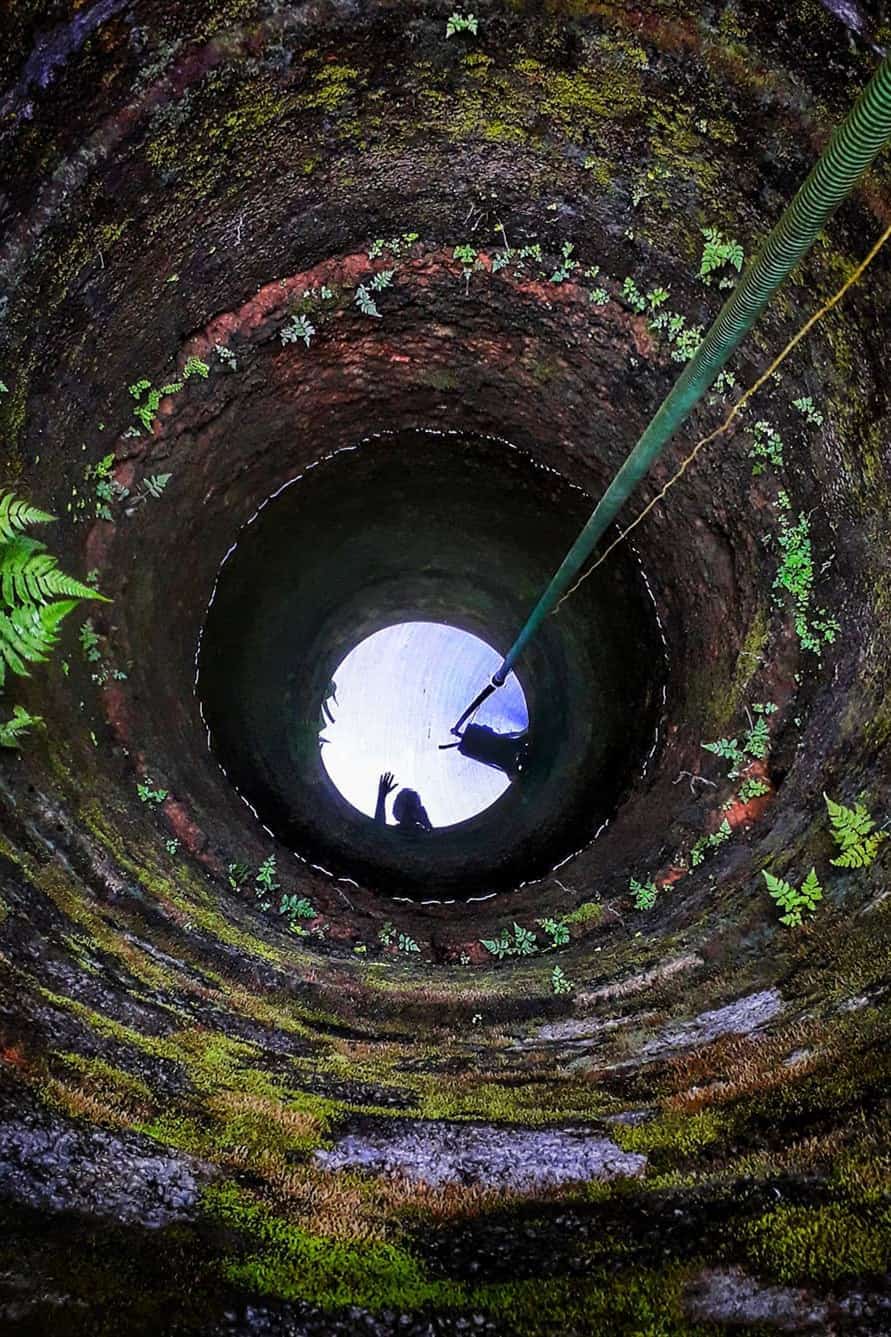
Uses Electricity
Well water pumps use electricity to get the water up into your home. If you have a power outage, you will be unable to access the water from your well.
Or if your pump breaks then again, you will not be able to get any water. It is best if you can have a back-up source of electricity such as solar power or a generator.
Maintenance
Because you are accessing your own water, you are responsible for the maintenance. If your well runs dry, for example, you are the one that needs to sort it out.
This can run up a huge cost if it is difficult to regain access to water. You should also get your water tested often to ensure that it is potable.
Contaminants
As mentioned earlier, well water can be prone to picking up any contaminants from the earth around it. Chemicals, sewage, animals, and more can all contaminate the water that flows through your well. That is why you must thoroughly filter all your well water.
Staining
Well water is generally hard water that contains minerals. These minerals can stain your fixtures, sinks, toilet, and bathtub. Some of the marks may be from limescale left behind by the water. Some of the harder to remove marks are stains caused by iron.
These stains are orange and extremely difficult to get rid of. Iron can also change the taste of your water so you may want to use a water filtering system to filter it out.
Here is some information about what a well system usually contains:

City Water
If you have water coming in from the city, this is the more common option for people. The city gathers the water and filters it before sending it out to the homes of inhabitants.
After the water is treated, it will sit in a reservoir and reach your place through underground pipes known as water mains. From the water main, the pipe that fetches the water to bring it into your home is called a service lateral line.
Just as well water has positives and negatives, so does city water.
City Water Pros
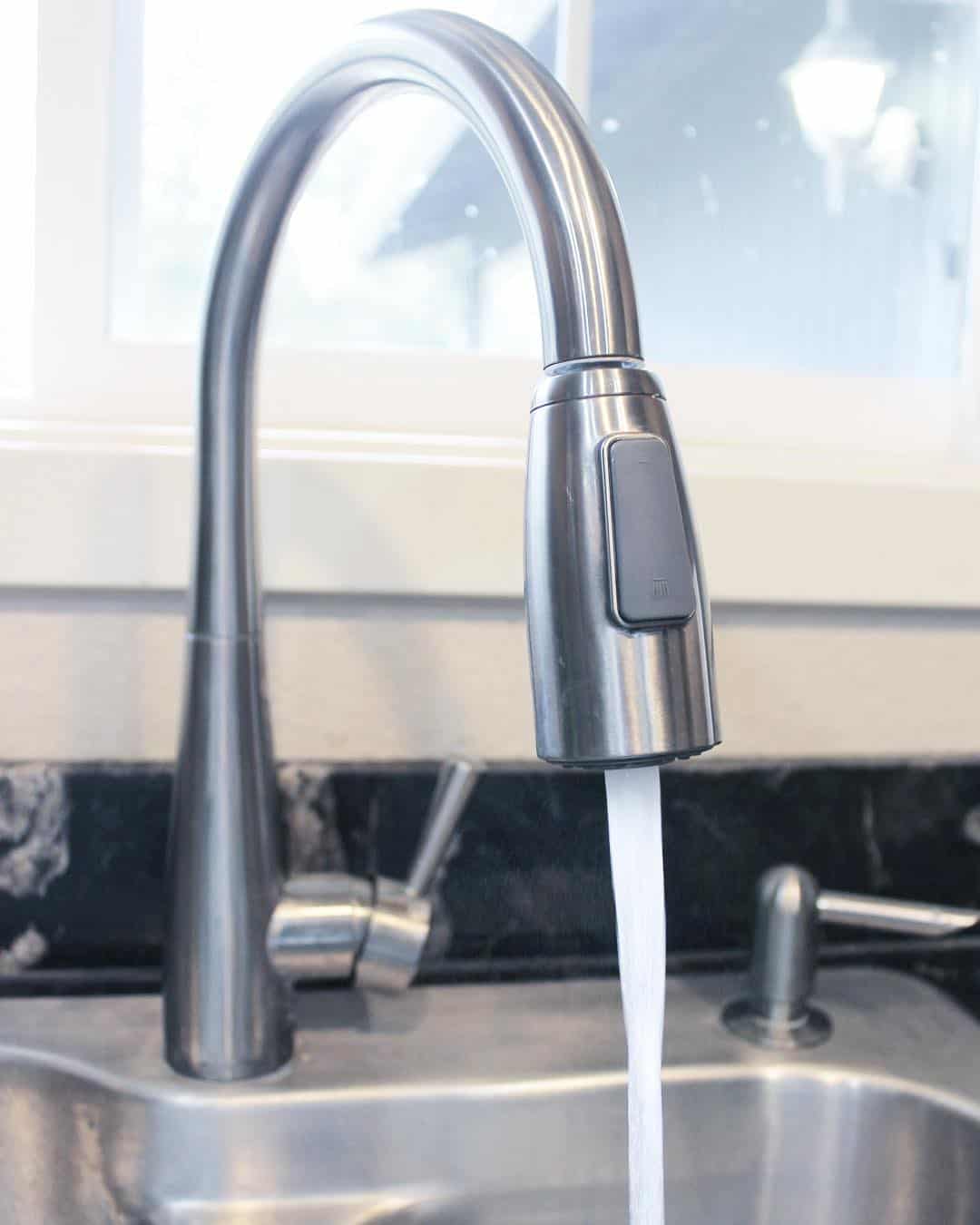
Quality
The city is responsible for the quality of your water. They routinely test the water and are accountable for it being safe to drink. This means that you can just turn on your tap and drink the water without wondering if it is safe or not.
This testing process is regulated by the Environmental Protection Agency (EPA). They are in charge of ensuring that although water in different areas may contain different substances, it is all safe to drink.
They provide standards for more than 90 kinds of contaminants, including salmonella, E. coli, and lead.
Availability
In most regions, city water is easily accessible. It is likely that your house is already connected to the city water supply, so it is no effort on your part to use it. You may need to request that the city turns on the water to your home, but that is it!
In case there is any kind of emergency, cities tend to store thousands of gallons of water just in case. If water is no longer accessible for some reason, these tanks can be accessed to maintain fresh supply for homes.
This is not so with well water – if the pump breaks or there is an emergency, you may not have any access to water.
City Water Cons
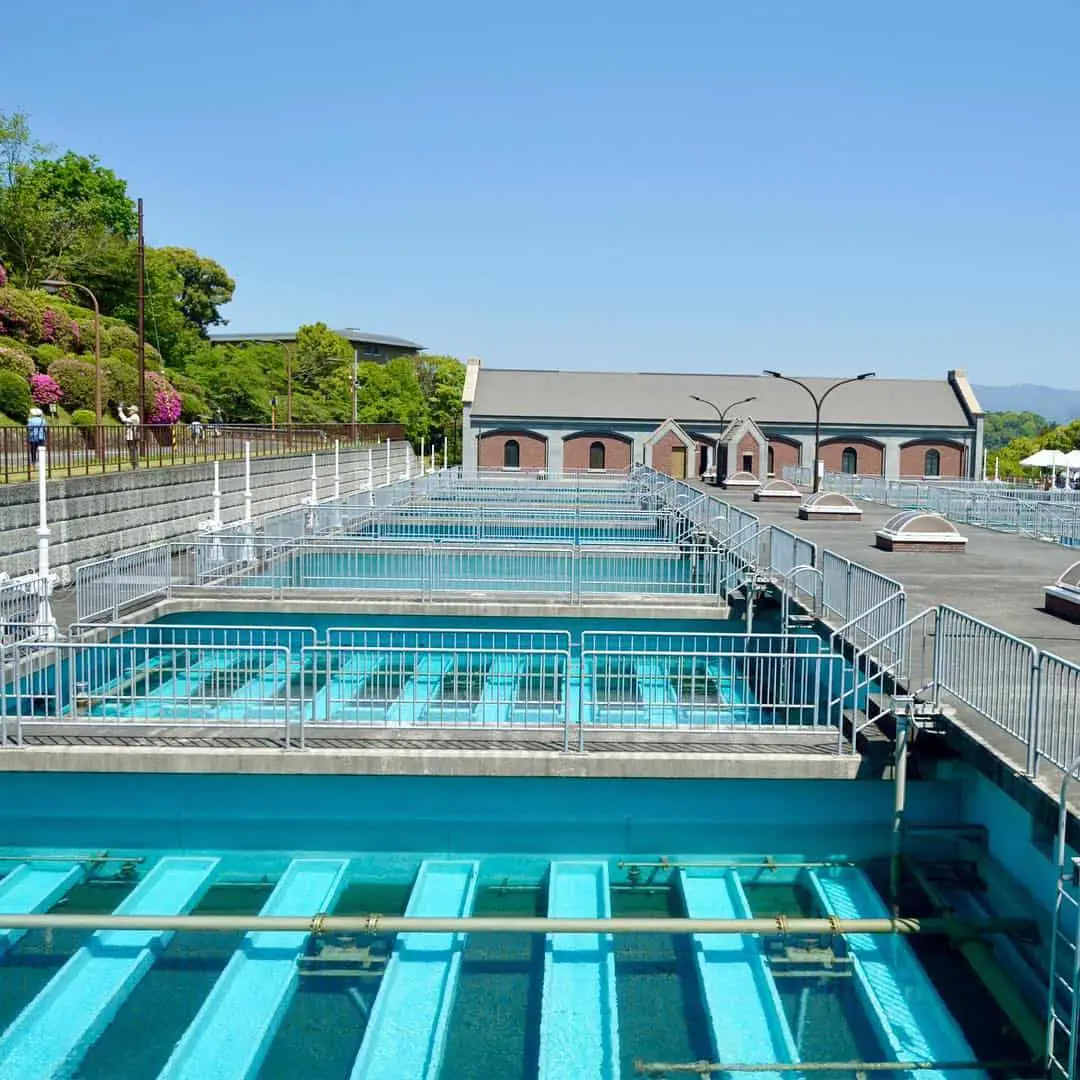
Freshness
City water is often less fresh than well water. That is because it is collected from surface water as well as run-off. In this way, it can pass through more pollutants and chemicals. Surface water generally comes from lakes, rivers, streams, or the ocean.
City water can also be sourced from groundwater, but this is less common in metropolitan areas and more likely to be found in rural locations.
As the city adds chemicals to ensure safety, it can also have a strange taste. This is the reason that you may want to filter it yourself. Having the city adding chemicals gives you less control over what you are drinking unless you do choose to buy a filtration system for your home.
Costly
If you are using city water, you will be charged for this with a monthly bill. Water bills are constantly being raised by cities nationwide, becoming more and more unaffordable for many people.
The fees are calculated based on how much water you use. These bills can add up and be more expensive in the long run than well water, especially if you use a large amount of water.
Contaminants
If an event like a flood were to happen, city water can be massively affected. It can become contaminated with all sorts of debris that flows into our streams and rivers.
It takes the city a lot of time to filter the tonnes of water it needs to before you can be sure your water is fresh again.
You may need to boil your water for quite some time before it has been treated enough to become useable again.
Filtering Your Water
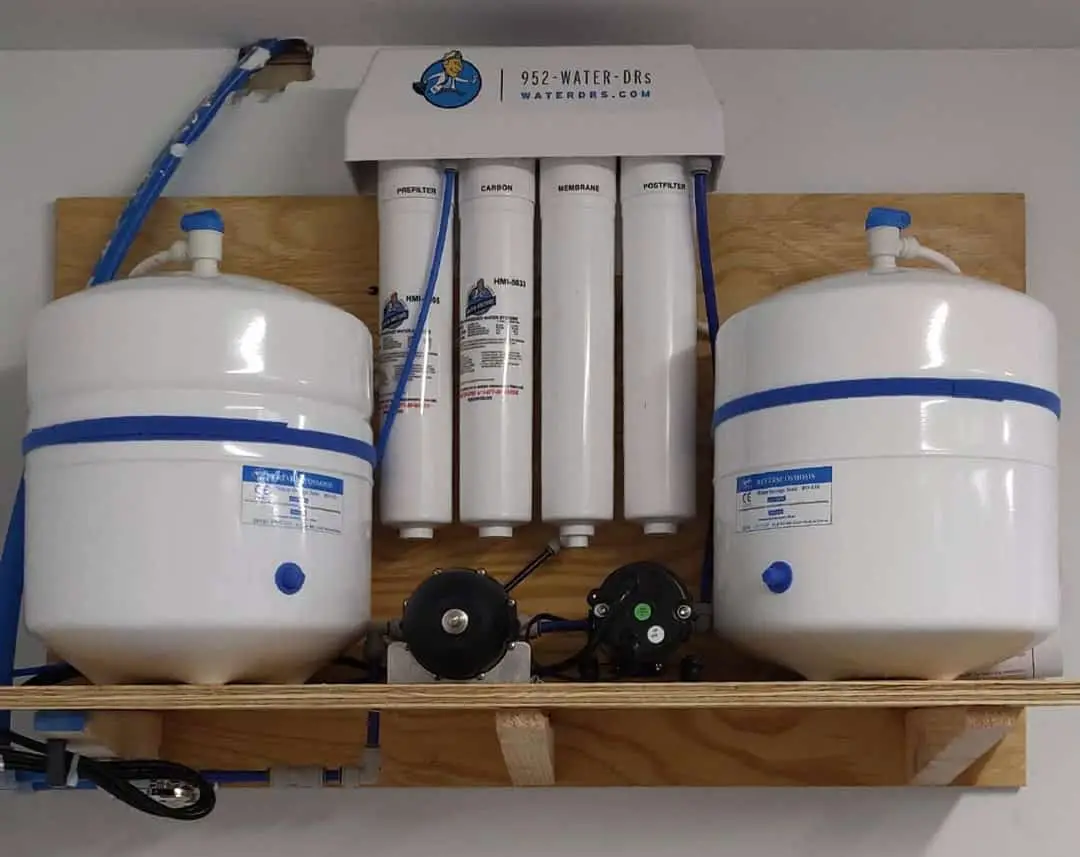
Whichever way you go, your water can still become contaminated. That is why no matter which one you use; it is a fantastic idea to filter your water yourself.
By using a whole house filtering system, you can take out many of the chemicals and soften your water. This will ensure that it is safe to drink and use for cooking and showering.
Depending on the type of filter media you use, it can filter out chemicals such as chlorine, fluoride, and other chemicals that pollute waterways.
You can also take the hassle out of hard water by softening it. Hard water is water that has a lot of minerals in it. Both well water and city water can be hard. These minerals end up leaving residue on our taps, baths, and sinks.
This can be hard to clean and is not optimal in our homes. By purchasing a water softener system, you can have fresh tasting water that will not leave a stain on the fixtures in your home.
Summary
Whether you prefer to use well water or city water will depend on the factors listed above. Is it more important to you to access free water that is rich in minerals? Or will you opt to have the city filter and quality-assess your water?
The deciding factor will likely be the house you end up living in. If you buy a house with a well, you will probably end up using it. If that is the case, be aware that you need to invest in a fantastic filtration system.
